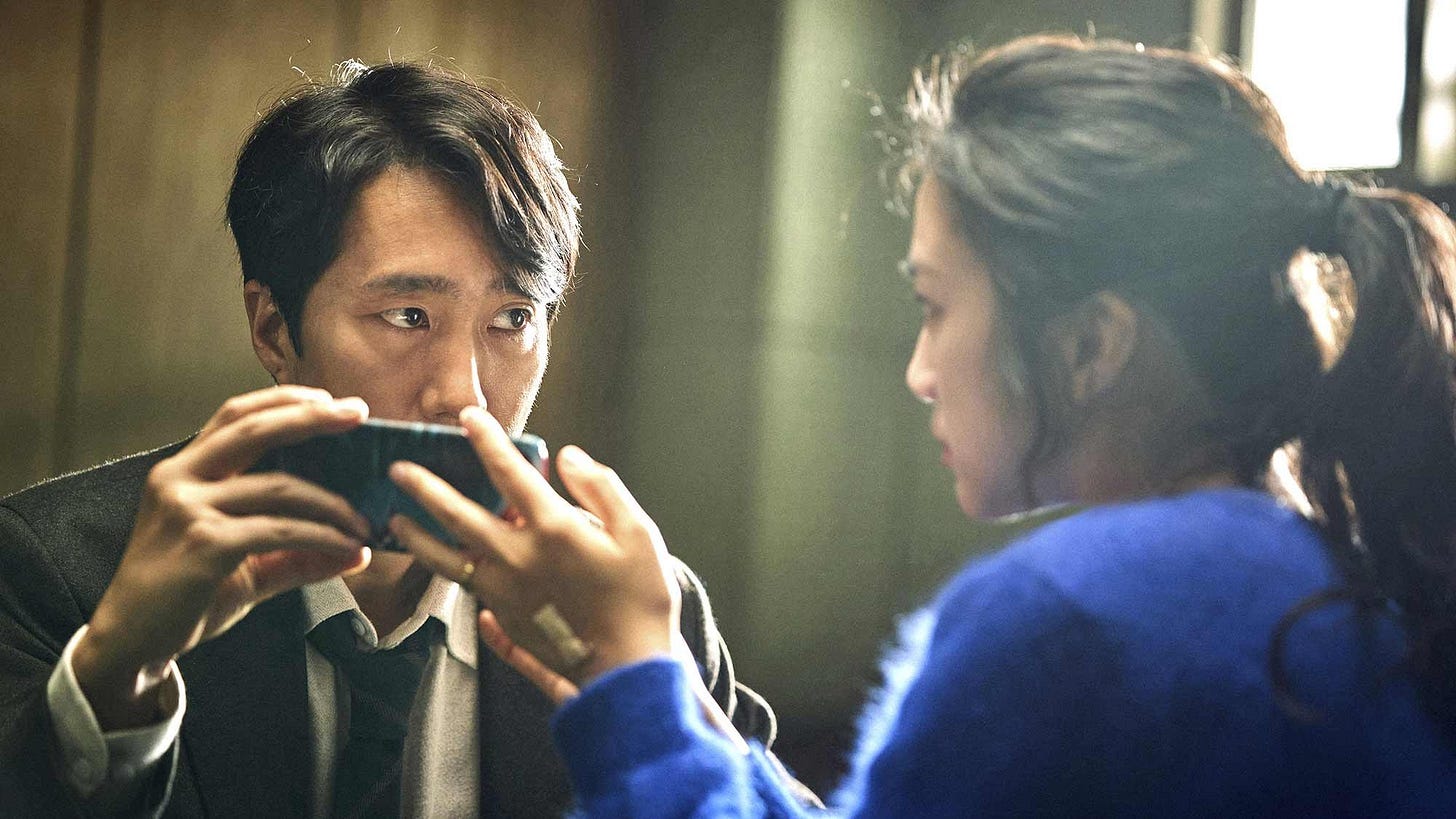Decision to Leave Review: Consequences of a Love Affair
Written by Jason Ahn.
Spoiler Alert : This review discusses the plot of the film Decision to Leave. If you prefer to watch the film before reading, stream Park Chan Wook’s film on Mubi here.
In Decision to Leave, director Park Chan Wook commands a mastery of romance and mystery to create a masterpiece. Nominated for both the Palme d’Or and Cannes Best Director Award (which Park won), the movie continues the sensational critical acclaim of Korean films with some critics claiming the film is the next great successor to Bong Joon Ho’s Parasite.
Although completely different in subject and genre from Bong’s magnum opus, Decision to Leave in its own right uses metaphors and intricate camera work to portray a love that starts off as quickly as it fades.
In the first half of the movie, Park holds firm grip over the film’s plot, taking the audience through the blossoming of a love affair. A man has died and his dead body is rotting below a cliff. Hae-Joon is tasked with investigating the murder, and his first witness is Seo Rae, the mysterious and beautiful widow of the deceased. During his surveillance of the widow, Hae-Joon commits adultery by slowly but surely falling in love with the woman, leading the couple down a path they can’t retreat from.
Hae-Joon uses the disguise of investigative work to stalk Seo Rae and watch her every move. Hae-Joon’s obsession heightens to the point where he imagines himself next to Seo Rae as she spends every night eating ice cream and smoking a cigarette, staring blankly into space until she falls asleep. Hae-Joon’s love for Seo Rae hinders the detective from conducting a unbiased investigation. Although he doesn’t fully trust Seo Rae, Hae-Joon gives her the benefit of the doubt, which backfires and guides the narrative in the second half of the movie.
In the second half, Park allows the film to rummage through time and space; the movie runs riot on itself as Hae-Joon and Seo Rae become obsessed with each other. However, the love is not mutual: Hae-Joon’s love ends when Seo Rae’s love begins. The second half of the movie is confusing yet clear in its intent: the fate is sealed for a love that was never meant to be.
Decision to Leave reminds the audience of the various intricacies of love and their effects on the human condition. Through Seo Rae’s means of loving Hae-Joon, the film highlights the horrors of unrequited love if the obsession of a lover derails all moral boundaries in exchange for the love to be reciprocated. The movie emphasizes how love can cause a person to sever their ties with their duties as the pendulum of rationalization falls apart by showcasing Hae-Joon's lack of accountability for his own investigative decisions in the face of his desires for Seo Rae. Lastly, by portraying Seo Rae’s manipulation of Hae-Joon, Decision to Leave features love as a means of manipulation, where the one who is loved takes advantage of love to cloud the lover’s mind and gain what they need/want.
Park’s desire to establish command of the art form succeeds as the film spirals out of control in the exact moment he wants it to. The first half of the film is a little drawn out at moments but the second half has the thrill of a roller coaster ride with all of its twists and turns. This film will have you on the edge of your seat, keeping you guessing the unimaginable as two lovers meet their eventual fate.


